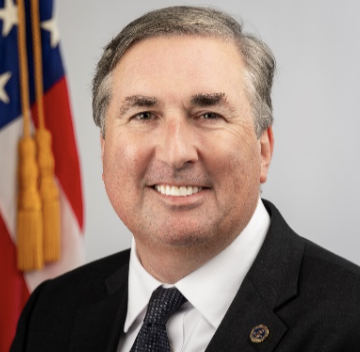President Biden's Inflation Reduction Act Has Helped Reduce Medical Expenses for Minorities
- Oops!Something went wrong.Please try again later.

Guest Opinion. This April, I’m taking a moment to reflect on the progress we’ve made to improve access to health care for communities of color. April is Minority Health Month, a time to acknowledge and raise awareness about health disparities among historically disadvantaged minority populations in our country – and what President Joe Biden is doing to close the gap.
While this observance may come once a year, this Administration has made it a priority every day to put equity at the center of all of our work. While we are taking great strides to improve access to health for all Americans, it’s important to recognize that disparities persist – due to the structural and systemic discrimination that has been built into our health system, making it harder for many people of color and minority groups to access and afford health care.
As the HHS Regional Director for the Midwest, I represent communities with some of the highest uninsured rates and highest rates of chronic health conditions, especially among Native Americans, Black, and Latino Americans. Longstanding structural barriers due to racism and discrimination have affected the ability of many minorities to have health insurance, access to a regular source of health care, access to healthy foods, and many other factors that have led to higher rates of diabetes and other chronic conditions. Due to these systemic barriers, people of color Medicare enrollees have higher rates of diabetes compared to white Medicare enrollees. Minority Medicare enrollees also report more difficulty affording their prescriptions than their white counterparts.
One of the most important parts of the President’s historic prescription drug law – the Inflation Reduction Act - is also one of the most beneficial to minority Midwesterners with Medicare; the law capped the cost of each covered insulin product at $35 per month’s supply. Capping the cost of insulin provides not only financial relief, but peace of mind to many families that may be struggling to afford this medication. My family has experienced this peace of mind firsthand. For decades, my father-in-law has paid hundreds of dollars for his insulin. Now, thanks to the new law, that money is staying in his pocket.
Further, the law is capped out-of-pocket drug costs to make sure that all prescription drugs are affordable for those who need them. This year, certain people with Medicare with high prescription drug costs will now see some relief by no longer paying anything out-of-pocket once they hit about $3,500 in 2024. I was recently at a senior center and had an 80-year old mother pull me aside. She is a Medicare enrollee and cares for her special needs 58-year old son on a fixed budget. She wanted to know if there is any help available to help her pay for her expensive drugs. When I explained that her out-of-pocket costs for her high prescription drugs are now capped at about $3,500 this year – and drop to $2,000 next year – she cried. That kind of savings can be life changing for seniors like her.
More needs to be done to reduce racial health disparities in this country. I’ve dedicated much of my time as HHS Regional Director to promote health equity in the Midwest.
And thanks to President Biden’s Inflation Reduction Act, we’re seeing real progress. More people have affordable health coverage today than ever before, and we are tackling the skyrocketing cost of prescriptions drugs at every angle – making it easier for people of color and others who have historically faced significant barriers to health care to get the life-saving medication and care they need.
Michael Cabonargi serves as Regional Director of the GreatLakes Region (Region V) of the U.S. Department of Healthand Human Services (HHS), responsible for Illinois, Michigan, Ohio, Indiana, Wisconsin, Minnesota and 34 indigenous tribal nations.
About the Author: "Levi \"Calm Before the Storm\" Rickert (Prairie Band Potawatomi Nation) is the founder, publisher and editor of Native News Online. Rickert was awarded Best Column 2021 Native Media Award for the print\/online category by the Native American Journalists Association. He serves on the advisory board of the Multicultural Media Correspondents Association. He can be reached at levi@nativenewsonline.net."
Contact: levi@nativenewsonline.net